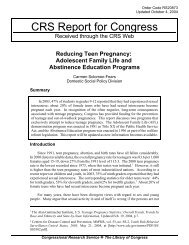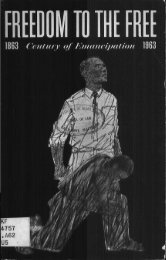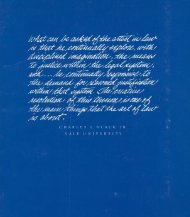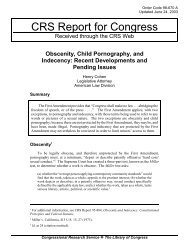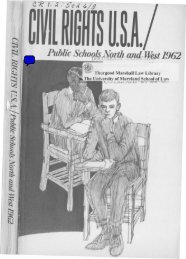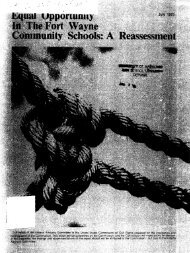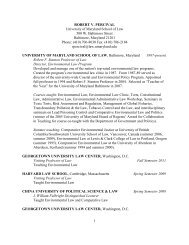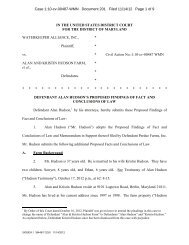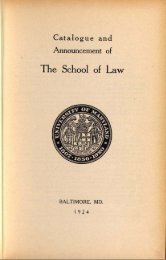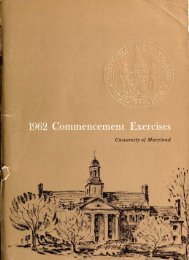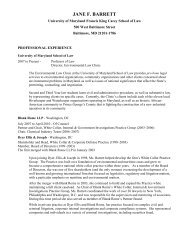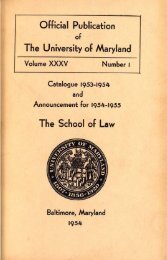journal - University of Maryland School of Law
journal - University of Maryland School of Law
journal - University of Maryland School of Law
Create successful ePaper yourself
Turn your PDF publications into a flip-book with our unique Google optimized e-Paper software.
28 MD. JOURNAL OF INTERNATIONAL LAW & TRADE [Vol. 14<br />
tion, however, the coverage is not clear." 4 Since the intent <strong>of</strong> Congress<br />
was not to extend protection to foreign affiliates, the Customs Service<br />
regulation reasonably resolves the ambiguity. 9<br />
In his dissent, Justice Scalia, joined by Chief Justice Rehnquist<br />
and Justices Blackmun and O'Connor, characterized the majority's<br />
reading <strong>of</strong> the phrase "<strong>of</strong> foreign manufacture" as "queer" and "not<br />
merely unusual but inconceivable . . . ."I Scalia explained his dissatisfaction<br />
with the majority's holding:<br />
The statute excludes only merchandise "<strong>of</strong> foreign manufacture,"<br />
which the majority says might mean "manufactured by a foreigner"<br />
rather that "manufactured in a foreign country." I think<br />
not. Words, like syllables acquire meaning not in isolation but<br />
within their context. While looking up the separate word "foreign"<br />
in a dictionary might produce the reading the majority suggests,<br />
that approach would also interpret the phrase "I have a foreign<br />
object in my eye" as referring, perhaps, to something from Italy.<br />
The phrase "<strong>of</strong> foreign manufacture" is a common usage, well understood<br />
to mean "manufactured abroad."'"<br />
Thus, the dissent argued that § 526 is clear and unambiguous with<br />
its language "<strong>of</strong> foreign manufacture" and the Customs Service regulations<br />
may not be used to alter the intent <strong>of</strong> Congress. 2<br />
Justice Kennedy, writing for a second majority consisting <strong>of</strong> Chief<br />
Justice Rehnquist and Justices White, Blackmun, O'Connor and<br />
Scalia, also held that the authorized use exception contained in subsection<br />
(c)(3) <strong>of</strong> the Customs Service regulation did not resolve any similar<br />
ambiguity. 53 In the case <strong>of</strong> an unaffiliated company which authorizes<br />
the use <strong>of</strong> its trademark, § 526 clearly allows protection <strong>of</strong> the<br />
trademark from gray market imports. Therefore the regulation operates<br />
contrary to the Congressional intent <strong>of</strong> § 526 and must fall. According<br />
to the Court, "[u]nder no reasonable construction <strong>of</strong> the statutory<br />
language can goods made in a foreign country by an independent<br />
foreign manufacturer be removed from the purview <strong>of</strong> the statute." '54 In<br />
48. Id.<br />
49. Id. at 300.<br />
50. Id. at 319.<br />
51. Id.<br />
52. See, Board <strong>of</strong> Governors, FRS, v. Dimension Financial Corp., 474 U.S. 361,<br />
368 (1986).<br />
53. K Mart, 486 U.S. at 293.<br />
54. Id. at 294.



